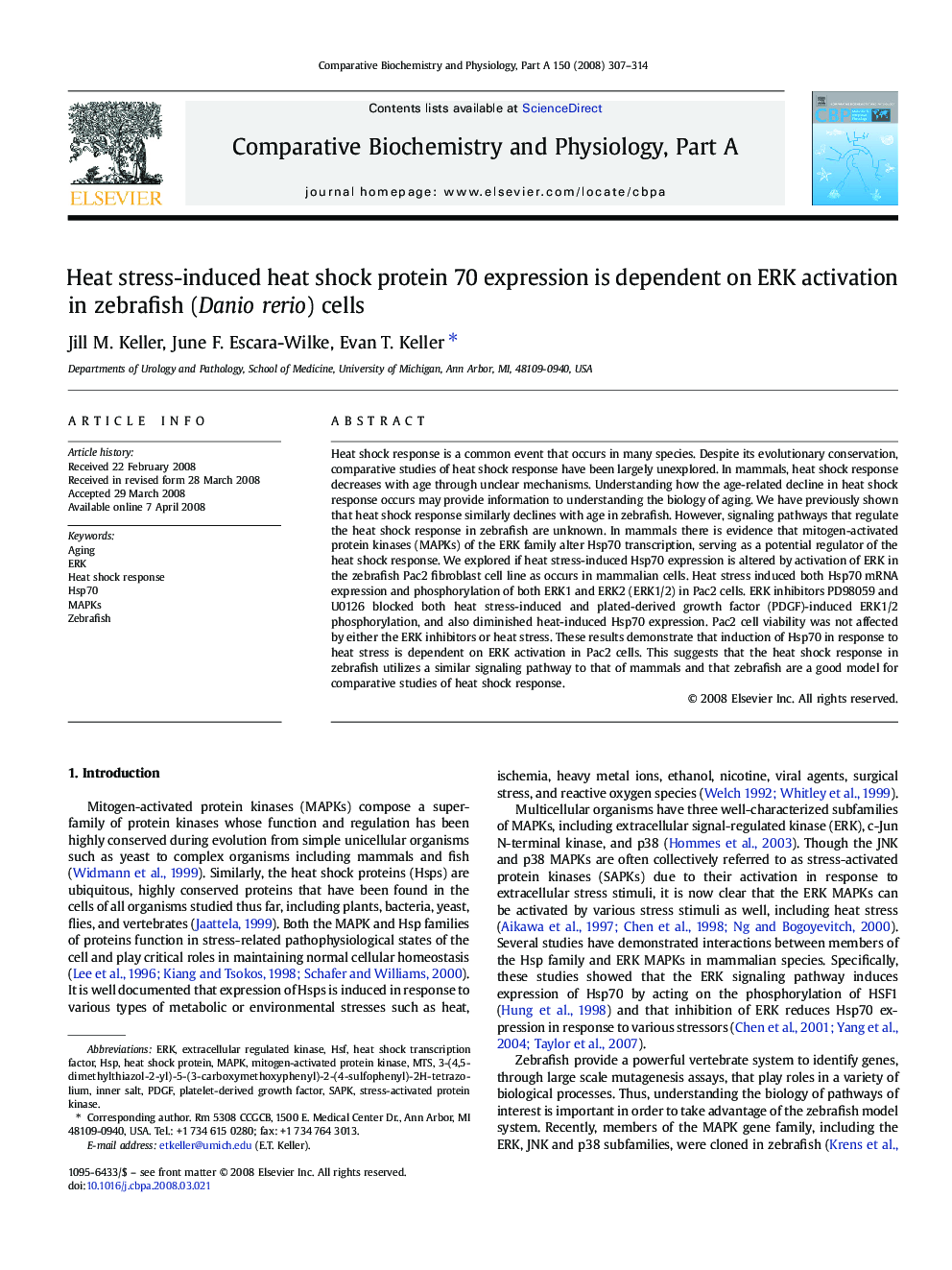| Article ID | Journal | Published Year | Pages | File Type |
|---|---|---|---|---|
| 1974138 | Comparative Biochemistry and Physiology Part A: Molecular & Integrative Physiology | 2008 | 8 Pages |
Heat shock response is a common event that occurs in many species. Despite its evolutionary conservation, comparative studies of heat shock response have been largely unexplored. In mammals, heat shock response decreases with age through unclear mechanisms. Understanding how the age-related decline in heat shock response occurs may provide information to understanding the biology of aging. We have previously shown that heat shock response similarly declines with age in zebrafish. However, signaling pathways that regulate the heat shock response in zebrafish are unknown. In mammals there is evidence that mitogen-activated protein kinases (MAPKs) of the ERK family alter Hsp70 transcription, serving as a potential regulator of the heat shock response. We explored if heat stress-induced Hsp70 expression is altered by activation of ERK in the zebrafish Pac2 fibroblast cell line as occurs in mammalian cells. Heat stress induced both Hsp70 mRNA expression and phosphorylation of both ERK1 and ERK2 (ERK1/2) in Pac2 cells. ERK inhibitors PD98059 and U0126 blocked both heat stress-induced and plated-derived growth factor (PDGF)-induced ERK1/2 phosphorylation, and also diminished heat-induced Hsp70 expression. Pac2 cell viability was not affected by either the ERK inhibitors or heat stress. These results demonstrate that induction of Hsp70 in response to heat stress is dependent on ERK activation in Pac2 cells. This suggests that the heat shock response in zebrafish utilizes a similar signaling pathway to that of mammals and that zebrafish are a good model for comparative studies of heat shock response.
